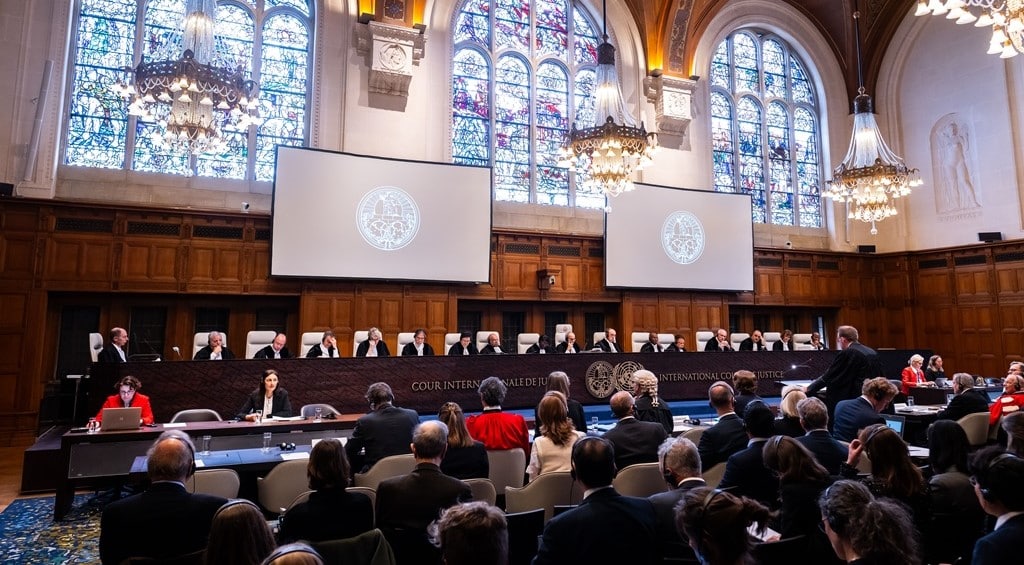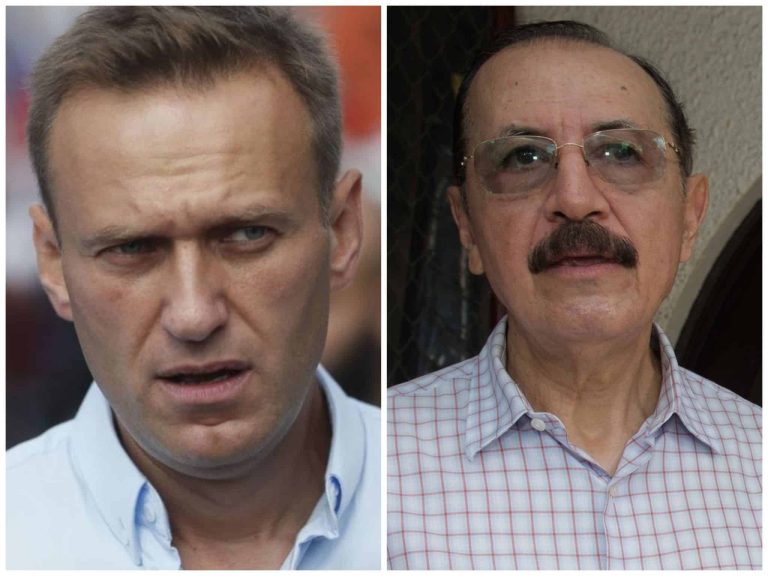20 de febrero 2024

ICJ Rules Against Nicaragua's Request For Germany to Halt Arms Sales to Israel

PUBLICIDAD 1M
PUBLICIDAD 4D
PUBLICIDAD 5D
It’s useless: tyrannies can never erase the example of courage and resistance of fighters for freedom and democracy who die in their prisons

The death of Russian opposition leader Alexei Navalny, 47, in a maximum-security prison in the Arctic Circle of Russia, under the custody of dictator Vladimir Putin, has caused shock and condemnation worldwide.
Many consider it a death foretold, because in 2020 Navalny survived a serious assassination attempt by poisoning carried out by Russian security forces. After recovering his health in Germany, he decided to return to his country to challenge the Putin regime, denouncing corruption and demanding democracy. Navalny was detained at the airport in January 2021 and sentenced to 19 years in prison for the alleged crime of “extremism.”
In Nicaragua, Navalny’s death caused by Putin’s torture prison system has revived the pain and indignation caused by the murders of political prisoners Eddy Montes in La Modelo prison in 2019, and retired General Hugo Torres in 2022, a prisoner in El Chipote prison. Like Alexei Navalny, they were prisoners of conscience who, in a civic manner, decided to challenge the Ortega Murillo dictatorship and were murdered by the regime, as has also happened before with other political prisoners in Cuba and Venezuela.
Like Putin in Russia, Ortega in Nicaragua treats those who demand democracy and justice with perversity, sadism, and cynicism, and with a total indifference to human life. Therefore, the hundreds of murders in 2018, the thousands of arbitrary detentions, and the cruelty against political prisoners and their families, remain in impunity.
In reality, Ortega and Murillo have no political project or ideology on which their repressive regime is based, there is no such anti-imperialist revolution inspired by the ideals of Sandino, nor a “second stage of the revolution,” nor a project in favor of the poor. The only thing that moves them after the April 2018 Rebellion is hatred and the thirst for revenge against opponents, which is also the fear of losing power.
The fear that arises from their own consciousness of being a corrupt political minority, is knowing they will have to be held accountable before justice. A family dictatorship rejected by the vast majority of Nicaraguans, including many public employees, and many of their own supporters in the FSLN, who are being monitored due to mistrust and end up emigrating to the United States.
Hatred and fear drive Ortega and Murillo to cling to power without any scruples or rationality. They crush all democratic freedoms and forcibly impose a personality cult. They have not only outlawed democratic political parties and illegally confiscated numerous media and universities, but also, inspired by Putin’s “foreign agent law,” they persecute the nuns of Mother Teresa of Calcutta, Operation Smile, the Red Cross, Miss Nicaragua, all business associations, and now also the Boy Scouts.
What kind of society can be built under this kind of dictatorship that is not that of Putin’s Russia, Kim Jong Un’s North Korea, the Communist Party of Cuba, or that of Nicolas Maduro’s Venezuela?
How is it be explained, if not by their hatred and desperation, that a tyranny has surpassed Pinochet’s military dictatorship by stripping 317 Nicaraguans of their nationality, illegally confiscating their property and Social Security pensions, and erasing their existence in the Civil Registry?
Like Ortega in 2021, Putin will be re-elected in the coming weeks without political opposition. Nicolas Maduro also plans to do the same in Venezuela, by disqualifying the main opposition candidate María Corina Machado and imprisoning political leaders and human rights defenders, to derail electoral competition.
Such is the manual of the dictatorships that have murdered Alexei Navalny and Hugo Torres in prisons, as they try to erase the example of courage and resistance of those who fight to restore democracy.
Aware of his imminent assassination by the Putin regime, Alexei Navalny declared in the extraordinary documentary “Navalny,” released in 2022: “If they kill me, do not give up.”
On June 13, 2021, minutes before being captured at his home by the regime’s police, Hugo Torres also recorded a message that is now his political testament: “46 years ago I risked my life to release Daniel Ortega and other fellow political prisoners from prison, but such are life’s twists and turns. Those who once embraced principles in favor of justice and freedom, today have betrayed them, and are the main enemies of those principles. Cheer up, people, we must keep our spirits up, history is on our side. They will go, they will go, the end of the dictatorship is near.”
The legacy of Hugo Torres and all the victims of repression is the example that keeps alive freedom of conscience, the demand for justice, and the hope for democratic change in Nicaragua, to bury the regime of hatred and revenge of Ortega and Murillo.
In the select club of dictators, Ortega and Murillo represent the weakest link in power, increasingly isolated internationally and with less popular support. That is known by the Army and Police generals, ministers and judges, mayors, and deputies of the FSLN, as well as business partners and frontmen of the regime, who every day see themselves in the mirror of the collapse of the Somoza regime in 1979, and now in the failed dynastic succession from Daniel Ortega to Rosario Murillo. They also know that tyranny cannot erase the example of courage and resistance of those who fight for freedom and democracy and who died in their prisons.
This article was published in Spanish in Confidencial and translated by Havana Times. To get the most relevant news from our English coverage delivered straight to your inbox, subscribe to The Dispatch.
PUBLICIDAD 3M
Periodista nicaragüense, exiliado en Costa Rica. Fundador y director de Confidencial y Esta Semana. Miembro del Consejo Rector de la Fundación Gabo. Ha sido Knight Fellow en la Universidad de Stanford (1997-1998) y profesor visitante en la Maestría de Periodismo de la Universidad de Berkeley, California (1998-1999). En mayo 2009, obtuvo el Premio a la Libertad de Expresión en Iberoamérica, de Casa América Cataluña (España). En octubre de 2010 recibió el Premio Maria Moors Cabot de la Escuela de Periodismo de la Universidad de Columbia en Nueva York. En 2021 obtuvo el Premio Ortega y Gasset por su trayectoria periodística.
PUBLICIDAD 3D